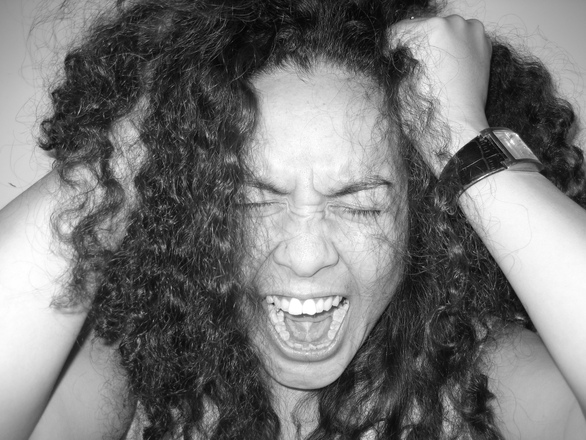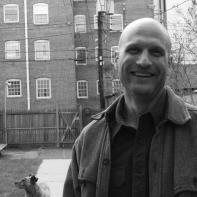 Angry, that’s what a critic has declared my When The Next Big War Blows Down The Valley: Selected and New Poems. Rather than worry that under gender scrutiny, “anger” is the equivalent of “shrill,” I decided to investigate anger in my influences and to discover whether the term, whether accurate or not, should be avoided at all costs. Although C.K. Williams’s poems addressed war, poverty and climate change, he escaped the anger label entirely. His obituary likened him to Walt Whitman, “politically engaged and passionate” and “Throughout, the sense of moral urgency remained, but without the declamatory tone.” The headline for Adrienne Rich’s obituary ran: “Adrienne Rich, the Poet Beyond Anger.” She is deemed “one of the great poets of rage,” and all there is of anger is the mention that it’s the Old Norse term for “anguish.” Craig Morgan Teicher’s headline for an NPR review of Derek Walcott’s work is “60 Years Of Poems Mix Anger, Ambivalence And Authority,” but the quote in the piece uses “rage” instead of “anger:”
Angry, that’s what a critic has declared my When The Next Big War Blows Down The Valley: Selected and New Poems. Rather than worry that under gender scrutiny, “anger” is the equivalent of “shrill,” I decided to investigate anger in my influences and to discover whether the term, whether accurate or not, should be avoided at all costs. Although C.K. Williams’s poems addressed war, poverty and climate change, he escaped the anger label entirely. His obituary likened him to Walt Whitman, “politically engaged and passionate” and “Throughout, the sense of moral urgency remained, but without the declamatory tone.” The headline for Adrienne Rich’s obituary ran: “Adrienne Rich, the Poet Beyond Anger.” She is deemed “one of the great poets of rage,” and all there is of anger is the mention that it’s the Old Norse term for “anguish.” Craig Morgan Teicher’s headline for an NPR review of Derek Walcott’s work is “60 Years Of Poems Mix Anger, Ambivalence And Authority,” but the quote in the piece uses “rage” instead of “anger:”
Ablaze with rage, I thought
Some slave is rotting in this manorial lake,
And still the coal of my compassion fought:
That Albion too, was once
A colony like ours, “a piece of the continent, a part of the main”Walcott, “Ruins in a Great House”
Last month Karen Finley, the artist who brought down the NEA two decades ago, wrote: “Speaking out with passion is considered inappropriate; you can still see that 25 years later in the scrutiny of Hillary Clinton… You have a right to be angry. We need to have a place in our society where we can be expressing discomfort and conflict.”
The number one aesthetic rationale for avoiding anger is that it dates the work. Whatever you’re unhappy about will change and need a footnote in the Norton Anthology. Number two is that it will always alienate some of its audience and thereby make the work less universal, less classic, less worthy of attention. But Shelley’s “England in 1819,” a poem written two hundred years ago about inequity, is one that has endured. Consider its opening lines: “An old, mad, blind, despised, and dying King;/Princes, the dregs of their dull race, who flow/Through public scorn,—mud from a muddy spring.” I presume the poem has never been a favorite of monarchs, nor even of oligarchies, but for the 99% it’s still a Yes. Anger is one valid response to truth. “Truth is like poetry. And most people fucking hate poetry” is text-on-the-screen from “The Big Short,” the new movie about the 2008 housing bubble, a very angry film. As Paul Celan wrote: “Not-to-want-to-become-aware-of is the liar’s main business….”
I posit that making readers uncomfortable with anger is just as valid as causing the reader to become aroused with love poems. When Lola Ridge (1874-1941) was asked by the arch-conservative English poet Alice Hunt Bartlett what topics she felt were appropriate to poetry, she wrote: “Let anything that burns you come out whether it be propaganda or not… I write about something that I feel intensely. How can you help writing about something you feel intensely?” You can imagine Bartlett phrasing the question around the issue of Ridge’s social conscience, most visible in her first book about Jewish immigrants, The Ghetto and Other Poems, a book that didn’t bemoan the Jew’s situation, nor condemn them like Eliot and Pound, but celebrated their place in a new country. Here is Ridge’s imagist poem about the vast number of unemployed who struggled during a downturn at the beginning of the 20th century:
Debris
I love those spirits
That men stand off and point at,
Or shudder and hood up their souls—
Those ruined ones,
Where Liberty has lodged an hour
And passed like flame,
Bursting asunder the too small house.
With anger you only have to flex the muscle, not kayo the reader, allowing her to judge whether she is going to join you in your anger—the way you would with regard to any emotion expressed in a poem. That flexing is difficult, an art. When Czesaw Milosz published “Sarajevo,” a poem that wasn’t his best, he told his translator Robert Hass, “Sometimes it is better to be a little ashamed rather than silent.” The world is full of uncalled-for beauty and senseless tragedy and perfidy, and poets must try to express all of it. The Brooklyn Rail recently wrote: “Terese Svoboda is one of few contemporary American writers who possesses a global consciousness.” I don’t want to remain silent. Is that a problem for you?
